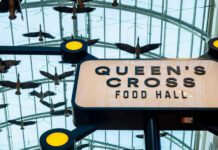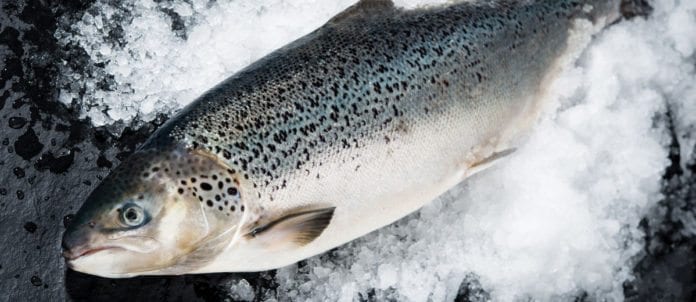In late spring, B.C.’s Kuterra announced the first commercial harvest of farmed Atlantic salmon from its next-generation facility on Vancouver Island. Raised in tanks on dry land, Kuterra’s salmon is produced without hormones and without the antibiotics and pesticides needed in open-net aquaculture.
For chefs and foodservice operators, sustainably farmed salmon is likely to be a high-profile premium offering with strong market acceptance. Speaking a week after Kuterra’s launch at the Atlantic Salmon Federation’s headquarters in Saint Andrews, N.B., Guy Dean of Albion Fisheries — Kuterra’s distributor — estimated the North American demand for sustainably farmed salmon at 750-million pounds per year. The current supply of farmed salmon with some form of ecological certification lags well behind, at only four-million pounds per year.
Dean spoke at a two-day workshop on recirculating aquaculture systems, co-hosted by the Atlantic Salmon Federation and the West Virginia-based Freshwater Institute. Steven Summerfelt, The Freshwater Institute’s research director, said Kuterra’s launch could provide a crucial boost to the fledgling industry. “We need a success story,” he told workshop attendees. “We need someone producing salmon on a commercial scale and making a profit.”
Kuterra can currently produce 450 metric tons of salmon per year, just enough to whet the appetite of chefs and seafood buyers. The initial production facility will serve as a template for future expansion, bringing the operation’s total capacity to 2,500 metric tons over the next few years. The fishery’s initial harvest was snapped up by Canada Safeway for sale in its B.C. and Alberta stores, but, as more product becomes available, Albion’s Dean sees a key role for the foodservice industry. “Chefs are on the front line,” he says. “They have the power and the influence to support sustainable methods.”




















